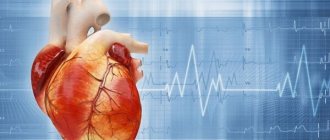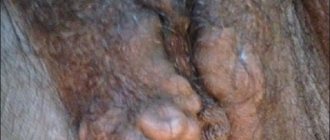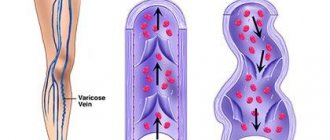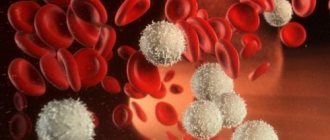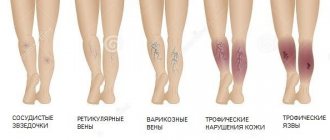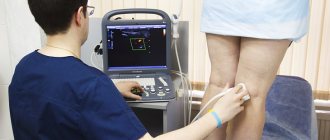We have all heard that the medical commission at the military registration and enlistment office sends to service everyone who has received a summons, regardless of the young man’s health condition. In fact, the situation is exaggerated, but if you have serious health problems that may interfere with the performance of military duties, it is better to get diagnosed in advance. And so, do they take into the army with varicose veins, and if so, what documents must be provided at the medical examination of the military commission? All information on all questions of interest is presented in the article.
So, what are varicose veins? According to statistics, about 61.9% of the world's population suffers from varicose veins. At the same time, 40.3% of patients are extremely negligent about their health, ignoring the signs of varicose veins. Such carelessness in most cases leads to the formation of trophic ulcers, which are extremely difficult to treat and do not heal for a long time. Every fourth man has a clear picture of varicose veins. For information about the peculiarities of conscription with other diseases, see what diseases are not accepted into the army in the corresponding section of the site.
Do they take you into the army with varicose veins on your legs?
Whether or not a young man with varicose veins on his legs is fit for military service is determined by the military medical commission of the military registration and enlistment office. According to the Schedule of Diseases, conscripts with the second and third stages of the disease are not fit for military service and are recognized as having limited fitness.
If we are dealing with the initial or first stage, then they are taken into the army with varicose veins, since they usually do not cause the development of severe complications.
If varicose veins on a conscript’s legs are detected for the first time and there are no entries in the medical record, then the doctors of the military registration and enlistment office can grant a deferment for health reasons to such young men for 6 months. After passing a second medical examination, the military registration and enlistment office will make a final decision on the conscript’s release from military service and enlistment in the reserves.
After this, the conscript will not serve and can receive a military ID.
Depends on the degree of the disease!
“Is military service dangerous if you have varicose veins?”
“What methods guarantee the correct diagnosis?”
“Is there a chance not to go into the army with varicose veins?”
Varicose veins are a fairly common disease that affects more than half of humanity. Varicose veins should not be ignored at all, because in the absence of proper treatment, it can lead to the formation of trophic ulcers, which are extremely difficult to treat and do not heal for a long time.
Every fourth man in our country suffers from this disease, so conscripts need to pay close attention to this disease.
Visually, varicose veins are quite easy to identify, just by carefully examining the patient’s legs. Pronounced veins indicate that the vessels have lost their elasticity. With a diagnosis of varicose veins, any physical activity on the lower extremities may be contraindicated to inhibit the development of the disease.
In order not to confuse varicose veins with a number of other diseases, it is important to know the symptoms of this disease:
- pain in the lower extremities,
- convulsions that become more frequent over time,
- itching on the skin of the legs,
- feeling of heaviness and fatigue in the legs.
All these symptoms will help identify the disease even before visiting a doctor, and the degree of the disease will affect whether the conscript will be accepted into the army or not.
Whether someone with varicose veins will be accepted into the army or not depends on the degree of the disease.
There are four stages of varicose veins:
- The first stage is accompanied by nagging pain and the appearance of swelling in the legs. Often the illness is confused with fatigue and the symptoms are not given importance. The appearance of spider veins and increased frequency of convulsions, especially at night, may alert you.
- The second stage is characterized by constant swelling and increased pain in the legs.
- At this stage, the veins are noticeably dilated, the skin may peel, and the venous network may cover the entire surface of the legs.
- At this stage, hospitalization is indicated.
If a conscript has stage 2 or 3 of varicose veins, then with a high degree of probability he will be exempt from military service. With the first stage of the disease, the young man is considered fit for military service.
Fitness category “D” can be obtained if the patient has obvious venous insufficiency, and the process itself has already entered the chronic stage. Also, a conscript with obvious trophic ulcers will probably receive a “white ticket”.
Expert opinion
Kozlov Andrey Kirillovich
Lawyer with 10 years of experience. Specialization: criminal law. More than 3 years of experience in developing legal documentation.
Chronic varicose veins are accompanied by improper blood flow, and, as a result, constant swelling. This may lead to the assignment of category “B”, which exempts you from military service in peacetime.
To identify the symptoms of the disease in advance, the best solution would be to consult a phlebologist. He prescribes an examination for the patient that allows one to accurately identify the stage of the disease: ultrasound, angiography, Doppler sonography.
It is better to undergo the examination in advance so that you can come to the military registration and enlistment office with the necessary documents. It is important to identify the degree of manifestation of varicose veins as accurately as possible, which the VA surgeon may not be able to cope with adequately.
Not in all cases it is possible to say in advance whether someone with varicose veins will be accepted into military service or not. In any case, it is highly advisable to first undergo a complete examination of the body, which will help to identify complex disorders and begin proper treatment on time.
Varicose veins in the early stages may well become a feasible burden for a young man when serving in the army, but the serious course of the disease can only worsen with physical exertion in the field, which makes military service impossible.
If the diagnosis is confirmed, but treatment can lead to recovery, then the conscript is given a deferment from conscription for six months, after which doctors issue a referral for re-diagnosis. What awaits the conscript next will depend on the decision of the medical officer. VK commissions.
Doubt your diagnosis or VVC decision? Military lawyers are ready to protect your interests in court, as well as provide the necessary consultation free of charge. Contact us now!
Varicose veins, or simply varicose veins, is a disease of the vessels that carry blood to the heart. With this pathology, an increase in the lumen of the vessel occurs, its deformation, loss of elasticity and the formation of nodes of a characteristic shape.
As a rule, the disease affects the lower extremities; deformation of the blood vessels of other organs (testicles, rectum, esophagus) is much less common.
Usually varicose veins are perceived exclusively as a cosmetic problem. Its insidiousness lies in the fact that in the early stages the disease causes mainly psychological inconvenience.
However, you should not take varicose veins lightly. This pathology can be a consequence of serious disturbances in the functioning of the body, and can itself lead to serious complications.
These include thrombophlebitis, thrombosis, ulcers, heart attack and stroke.
Expert opinion
Kozlov Andrey Kirillovich
Lawyer with 10 years of experience. Specialization: criminal law. More than 3 years of experience in developing legal documentation.
The distribution of varicose veins is extremely wide. In developed countries, almost 90% of women and about 50% of men have the disease to varying degrees.
In Russia the situation is somewhat better, but in our country more than half of the population suffers from varicose veins. The disease most often affects middle-aged and older people, but in recent years it has been rapidly becoming younger.
Therefore, it is not surprising that young men of military age are very interested in the question: are they recruited into the army with varicose veins on their legs? It is difficult to answer unambiguously, because the decision of the medical commission is individual in each case. How compatible varicose veins and the army are depends on the degree of the disease, its cause and associated pathologies.
The importance of correct diagnosis
You should not rely only on the diagnosis made by surgeons sitting on the military commission. As a rule, this is a quick, superficial examination, and it is clearly not carried out in the interests of the conscript’s health.
Therefore, it is important to insist on conducting a full diagnosis in a hospital setting using laboratory and physical examinations. To do this, you need to visit a phlebologist - a doctor who treats varicose veins.
The most accurate diagnosis can be made only after ultrasound and Doppler sonography. But biochemical blood tests in this case will not be superfluous. Fortunately, the price of such studies is affordable today, and the necessary equipment is available in municipal medical institutions.
It is highly advisable to have a complete understanding of your illness before going through a commission at the military registration and enlistment office.
It is important to have a medical card on hand in which the relevant records of the disease will be made.
How to get a degree of fitness
The traditions of national military conscription are that a young man will have to carefully prove to the medical board the presence of a particular diagnosis and the degree of circulatory pathology when it comes to varicose veins.
Since it is impossible to visually determine the exact diagnosis and venous insufficiency, a conscript, if he wants to obtain the right to a deferment, must be in full pain readiness:
- A young man must prepare in advance for the onset of conscription age and the expectation of an invitation to the military registration and enlistment office. More precisely, his parents will have to take care of this to a greater extent. It is advisable to include records of illness for the last few years in the medical card;
- As soon as the guy receives the summons, he needs to undergo all the necessary research himself and update the diagnosis. With the test results and the phlebologist’s conclusion, you can safely go to the military registration and enlistment office;
- At the examination, provide all necessary documents. Typically, the patient will be prescribed additional diagnostics in the medical institution trusted by the military registration and enlistment office.
After the conscript receives confirmation or refutation of the diagnosis, the commission decides whether to grant the right to a deferment. Appropriate notes are made in the personal file and military ID. All the nuances of granting a deferment to patients with varicose veins are described in more detail in the video in this article, which is recommended for viewing on our website.
Why do veins swell?
Scientists are still arguing about the mechanisms and causes of the development of varicose veins. It is believed that the pathological process is triggered by a disruption in the normal functioning of the venous valves, which do not allow blood to flow in the opposite direction.
In the walls of blood vessels, the balance between elastic fibers, muscle cells and epithelium is disturbed, which leads to their chronic inflammation. The first to suffer are the vessels that are subject to the greatest stress - the veins of the lower extremities.
Excess blood appears in them, which is discharged into the subcutaneous venous network. This leads to the appearance of characteristic symptoms of the disease.
Of course, hereditary factors play a major role in the development of varicose veins. They generally determine predisposition to this disease, but its trigger is still a person’s lifestyle.
It is not for nothing that varicose veins are called a disease of salesmen, surgeons and hairdressers - people who are forced to spend a significant part of their lives “on their feet”. Standing for a long time maximally complicates the outflow of blood from the lower extremities, which contributes to varicose veins.
Excess weight, lack of physical activity, bad habits, leg injuries, tight and uncomfortable shoes contribute to the development of varicose veins. In women, this problem often occurs after childbirth and pregnancy.
Vasodilation provokes a number of diseases: diabetes, hormonal disorders, problems with the gastrointestinal tract, increased blood viscosity. With age, the walls of blood vessels weaken, so varicose veins develop more often in older people.
Varicose veins are dangerous due to their complications. Insufficient blood flow leads to the appearance of large and non-healing trophic ulcers. Vascular pathologies are often accompanied by the formation of blood clots (thrombophlebitis). If they tear off, blockage of the pulmonary artery or coronary vessels may occur.
Causes of varicose veins in conscripts
The disease is insidious and can develop against the background of various unfavorable factors:
- Human activities associated with sedentary work, when there is practically no at least minimal load on the legs. In this state of affairs, the first signs of the disease often make themselves felt.
- Excessive consumption of alcoholic beverages, nicotine addiction, as well as even more terrible drug addiction, which lead to the formation of blood clots in the veins.
- A sedentary lifestyle is contraindicated if you are predisposed to the development of varicose veins, just as much as regular leg fatigue. The walls of blood vessels receive greater stress, their structure becomes thinner, and swelling becomes possible.
- An important factor that can lead to the development of varicose veins is human heredity. There is a group of people in whom this disease, in favorable situations, can quickly develop and progress, leading to pathological complications.
- Patients diagnosed with diabetes can often suffer from varicose veins with the subsequent appearance of trophic ulcers.
Excess cholesterol is a predisposition to the formation of growths on the walls of blood vessels
Latest information: Phlebitis of the veins on the arm
These tumors narrow the lumen and slow down blood flow, resulting in the formation of blood clots. Varicose veins with the formation of blood clots can appear as a result of severe injuries to the lower extremities, in which the vessels were also damaged. Close attention should be paid to the shoes and clothes used in everyday life. Too tight shoes, boots, short and ill-fitting clothes, and underwear that cause discomfort contribute to congestion, against which blood clots form in the veins. In some cases, the described disease, expressed by a strong load on the veins, is aggravated by frequent constipation in a person
If they are caused by any chronic disease, you can only reduce the symptoms and eliminate excessive pressure on the vessels of the legs. Excess weight negatively affects the health of a person's legs. If you are obese, you should immediately contact a nutritionist who will help normalize your daily diet and identify the most effective diet. Excess weight provokes an increase in intra-abdominal pressure, which entails an unpleasant manifestation in the form of varicose veins.
Symptoms and stages
The first manifestation of varicose veins is the expansion and manifestation of small subcutaneous vessels - intricate “stars” or other patterns appear on the skin. This is the so-called reticular varicose veins - one of the types of varicose veins. Almost always, such problems are perceived as an aesthetic defect. There are four stages of the disease:
- Initial. At this stage of the disease, patients complain of a feeling of heaviness in the legs and fatigue. Numbness and tingling are also often felt. Already at this stage, swelling of the soft tissues in the ankles, legs, and feet may appear;
- First. To the above symptoms are added distinct visual manifestations, heaviness in the legs turns into a burning sensation, and cramps appear at night. A characteristic symptom of the initial stages of varicose veins is pain in the locations of the veins;
- Second. This stage is accompanied by chronic venous insufficiency, which leads to constant swelling of the legs. External manifestations of the pathology become more pronounced - characteristic venous nodes appear on the legs;
- Third. At this stage of the disease, the nodes cover a significant part of the limb, and skin changes begin. It acquires a bluish color and begins to peel off. If the patient does not receive adequate treatment, ulcers form on the skin. They practically do not heal and can be affected by secondary infections. This stage of varicose veins is usually accompanied by third-degree venous insufficiency.
It should be understood that varicose veins are a very long-lasting disease and the above-described metamorphoses last for years, and sometimes decades.
There are three methods of treating varicose veins: surgical, conservative and minimally invasive. The sooner a patient seeks medical help, the higher the chance of avoiding surgery. Diagnosis and treatment of varicose veins are carried out by highly specialized doctors - phlebologists.
Accurate diagnosis is the basis for a conclusion about suitability
Let's leave aside the conscript's personal reluctance not to join the army. And let's look at the problem from a different point of view, namely, let's try to predict the situation for future life.
To accurately determine the degree of circulatory disorders with varicose veins, only a consultation with a surgeon who is seen at the military registration and enlistment office will not be enough. A young man definitely needs to see a phlebologist - a specialist closely involved in the diagnosis and treatment of varicose veins.
Modern medical equipment, such as an ultrasonograph, allows the doctor to make the most accurate conclusions. True, such devices are only available in specialized clinics, but if necessary, they are not difficult to find.
When choosing, you need to focus on the Baltic Vein Clinic, a medical institution specializing in the treatment of varicose veins. Using advanced diagnostic techniques, board-certified phlebologists will thoroughly understand your case of varicose veins. And they will determine the further strategy of behavior.
Over the years, varicose veins can cause serious complications and can even deprive you of mobility. Therefore, you need to part with him without regret already in your youth. It is better to cure varicose veins and serve with dignity in the Armed Forces than to be considered a chronically ill person at the age of 18–20.
After treatment for varicose veins, the guy, of course, will not be sent to the Honor Guard Company, but it is quite possible to serve in the radio engineering troops.
Varicose veins and military service
Every man in our country, upon reaching the age of eighteen, is required to undergo military service in the army. A young man may be exempt from conscription if his health does not meet strict military criteria.
This issue is decided by a special medical commission that meets at the military registration and enlistment office during the conscription cycle. It operates on the basis of a special document - the Schedule of Diseases.
It contains a list of pathologies incompatible with military service.
After passing the commission, each young man receives a fitness category, which reflects his ability to serve in the army as a whole and to be drafted into one or another branch of the military. A similar system applies to contract soldiers.
- "A". Means that the conscript is absolutely healthy and can be sent to serve in any troops, including the Airborne Forces, special forces and submarine fleet;
- "B". This category shows that the conscript is fit for military service, but some branches of the military are not for him;
- "IN". The category shows that the young man is fit for military service to a limited extent. This means that in peacetime he will not be accepted into the army. After passing a medical examination, conscripts with category “B” are issued a military ID;
- "G". Category “G” means that the young man is temporarily unfit for conscription into the army. This means that he is entitled to a deferment, after which a re-examination is carried out. It is usually given for the duration of treatment or examination;
- "D". Absolutely unfit for military service. People with this category will not be accepted into the army even if martial law is introduced.
Varicose veins are covered under Article 45 of the Republic of Belarus. Having such a diagnosis, a conscript can receive one of three fitness categories: “B”, “C” and “D”.
When making a decision, the medical board is interested not so much in the presence of varicose veins or its stage, but in the degree of circulatory disorders that this disease has led to. If it is absent, then the young man goes to serve.
A conscript can receive a “non-conscription” category “B” if his illness is accompanied by significant venous insufficiency of the second or third degree. Category “D” is given to those liable for military service with severe circulatory disorders. The first degree of CNV is not considered a valid reason for exemption from service.
Stages of varicose veins of the lower extremities
The definition of categories (as can be easily seen from Table 1) depends on the complexity of varicose veins and the level of deformation of the inflamed vessels. Depending on the degree of pathology, there may be stagnant processes in the veins, causing the development of trophic ulcers, the appearance of nodes and calcium accumulations. Read to the end of this article to find out whether people with varicose veins are accepted into the army.
Based on the neglect of varicose veins, there are certain instructions for ranking the disease by stage. The main diagnostic symptoms are listed in Table 2.
Table 2. Stages of the disease:
| Stage | Diagnostic signs | A good example |
| Initial | A person experiences pain or discomfort in the legs after physical work or staying in an upright position for a long time. By the end of the day, your legs may swell. | |
| First | The symptoms characteristic of the initial stages of the development of the disease remain, but they are supplemented by deformative morphological changes in the condition of the veins, visible to the naked eye: the veins are bent, small vessels are visible under the skin, and appear. In addition to the pain, infrequent cramps are added, and a burning sensation is felt in the feet and calves. | |
| Second | At this stage, the symptoms become very pronounced, this concerns primarily pain and swelling of the lower extremities. | |
| Third | The most characteristic sign of this stage is that the legs are covered almost over the entire surface with varicose nodes, hypoxia intensifies in the tissues, which leads to changes in the skin, it dries out, peels and changes color. |
Thus, in the case when a guy is diagnosed with varicose veins of the second or third degree with chronic venous insufficiency, he should be exempted from military conscription. Persons with initial or first degree ARV are considered eligible, with various reservations.
In this case, there may be a restriction on the choice of type of troops. After passing the commission, the young man receives a military ID with a record of the degree of suitability for serving in the army.
How to pass a medical examination with varicose veins
The medical commission at the military registration and enlistment office does not study the health of conscripts and does not diagnose them. Its task is to determine how suitable they are for the army.
Expert opinion
Kozlov Andrey Kirillovich
Lawyer with 10 years of experience. Specialization: criminal law. More than 3 years of experience in developing legal documentation.
And the military registration and enlistment offices themselves are interested in conscripting the maximum number of people liable for military service. Therefore, young people themselves must take the initiative during the commission.
It is necessary to declare your diagnosis and, if necessary, defend it. This applies not only to varicose veins, but to any potentially “non-life-threatening” disease.
You must come prepared for the examination, with medical documents confirming your diagnosis. In the case of varicose veins, showing swollen veins in the legs is not enough - in order not to go into the army, you need to prove circulatory disorders caused by the disease.
Therefore, before conscription, it is better to undergo an examination and come to the military registration and enlistment office with its results.
Usually, after studying the documents, the conscript is given a deferment and sent for additional examination. It is performed by a vascular surgeon or phlebologist. To make an accurate diagnosis, Doppler ultrasound (USDG), angioscanning, phlebography, rheovasography and radionuclide methods are used.
As practice shows, additional examination may not confirm the required degree of CVI. Most often, instead of the second, which gives the right to exemption from service, doctors use the first.
If you are confident in your diagnosis, then such a decision should be appealed - after all, it determines whether you will go into the army or receive a military ID. The conscript has the right to appeal to the chief physician or to court.
After the examination, the person liable for military service awaits a second examination, during which he receives a fitness category.
Severe forms of varicose veins are poorly compatible with heavy physical activity, without which military service is impossible. Therefore, having such a diagnosis, you need to make every effort to free yourself from conscription.
In recent years, military service has been gaining popularity again. A situation is possible when a young man wants to join the army, but cannot do this because of varicose veins.
In this case, he should contact a competent phlebologist who will prescribe a course of treatment. It can be both conservative and surgical.
This way you can reduce the degree of venous insufficiency and get into the “conscription” category. After this, you should contact the military commissar with a request to schedule a new examination.
How does the draft commission decide on the suitability of conscripts?
To be released from service, it is necessary to provide members of the draft commission with documentary evidence of the presence of varicose veins with the simultaneous development of venous insufficiency in the second degree.
Symptoms of this condition are:
- Feeling of pain in the lower extremities;
- Swelling of the legs that occurs after physical exertion and persists for a long time;
- Quick elimination of the listed symptoms after rest.
Other manifestations of varicose veins, which are not clearly expressed, are not accepted by the draft commission as a condition in which exemption from conscription should be granted. The degree of unfitness for military service is given to a conscript only if these two violations are confirmed. Upon receipt of a medical report, an entry is made in the military ID indicating the degree of suitability for certain types of military service or complete unsuitability.
Varicocele and military service
Expert opinion
Kozlov Andrey Kirillovich
Lawyer with 10 years of experience. Specialization: criminal law. More than 3 years of experience in developing legal documentation.
Varicose veins affect not only the vessels of the lower extremities. A fairly common pathology is varicose veins of the spermatic cord or varicocele - approximately 20% of men suffer from this disease.
Usually the disease affects the left testicle (more than 90% of cases), which is associated with the anatomical features of its venous system. Vascular damage leads to disruption of the blood supply to the testicles, which has an extremely negative effect on their functions and can lead to organ atrophy.
Varicocele is one of the main causes of male infertility.
Predisposition to varicocele is determined genetically, but there are factors that provoke the development of the disease. These include inguinal hernias, intense physical activity, some infections, and injuries to the abdominal cavity and scrotum. There are three degrees of varicocele.
In the initial stages, the disease can be practically asymptomatic, without causing any inconvenience to the person. As the pathology develops, patients begin to complain of discomfort and a feeling of heaviness in the scrotum.
Varicocele may well be the reason for exemption from military service. Young men suffering from such a pathology can count on one of three fitness categories: “B”, “C” and “D”. The decision of the medical commission will depend on the frequency of relapses of the disease and its severity.
Like varicose veins of the lower extremities, varicocele is covered under Article 45 of the Republic of Belarus. The disease at the initial stage is considered compatible with conscription into the army - it is not accompanied by functional impairments and most often occurs secretly.
The conscript himself may not be aware of his illness. A more pronounced clinical picture is observed with the second degree of pathology, however, they are usually recruited with it.
Conscripts with a similar diagnosis receive a “limited” category “B”. He may be offered to undergo surgery and get rid of the disease.
In this case, the young man will receive a deferment for the duration of treatment.
Only the third degree of the disease is considered non-conscription, which is accompanied by severe pain, dysfunction, and significant enlargement of the veins. However, there are nuances here too.
After the diagnosis is established, the conscript may be offered to undergo surgery and only then undergo a re-examination. However, whether to agree to surgery or not is a personal matter for the young man.
If he refuses surgery for third-degree varicocele, he must be assigned category “B” and issued a military ID. If the operation was successful and the patient’s condition improved, he will be called up for service. Usually, for young men with a similar diagnosis, obtaining a military ID is delayed for one and a half to two years.
Varicose veins are a fairly common disease, the essence of which is inflammation and bulging of the walls of the veins, the appearance of nodules on them, and in severe cases, ulcers. There are many reasons for varicose veins - obesity, sedentary lifestyle, heredity, high static loads. Are they recruited into the army with varicose veins on the legs and testicles? Let's take a closer look.
How long can you ignore a disease?
According to current standards, a conscript (on a general basis) can be a man up to 27 years of age inclusive.
The first commission from the military registration and enlistment office is carried out at the age of 14-16, when the guy registers with the military registration and enlistment office.
Accordingly, if at this age he is diagnosed with stage 2 varicocele, he will have to avoid treatment for at least 2 years in order to be declared unfit.
In the second stage, this is still allowed from a medical point of view, but in the third, it is highly not recommended. Firstly, a complete blockage of the veins may occur, after which the testicle will simply cease to function and its immediate amputation will be required. Secondly, atrophy may develop, combined with hormonal imbalance.
All of these are extremely negative phenomena for the young male body, which can provoke both infertility and erectile dysfunction. Each guy should decide individually what is more important to him.
In summary, people with varicocele are recruited into the army, but the disease can also become a reason for declaring a man unfit for military service, but only in the 2nd (with two refusals of surgical treatment) and 3rd stages of the disease. And as practice shows, it is better to come to the military commission with the already existing results of a general examination by an andrologist, so that the doctors at the military registration and enlistment office do not dispute the category of the disease (there are such cases).
We hope that our article was useful to you and you now know whether they enlist in the army with grade 3 varicocele and a deferment from the army after varicocele surgery.
Symptomatic manifestations of varicose veins
The very first sign of varicose veins is pain. The nature of the pain is similar to neurological disorders, but there is a sure way to check why the veins hurt. You need to lie down and raise your legs 40 degrees, lie there for 10 minutes. If the pain goes away, then it is caused by varicose veins.
Pain is not the only symptom of varicose veins:
- feeling of heaviness in the legs;
- swelling;
- muscle tightness and swelling after physical activity;
- decreased sensitivity of the lower extremities;
- burning and tingling along the vein.
Types of varicose veins
- In a narrow sense, the term “varicose veins” can mean an independent disease (varicose veins of the lower extremities) that occurs in combination with other venous diseases or is their consequence. Visually, varicose veins of the lower extremities are characterized by the presence of dilated and tortuous veins on the foot, leg and thigh.
- Varicose veins of the rectum are one of the mechanisms for the development of hemorrhoids.
- Varicose veins of the spermatic cord are called varicoceles.
Categories of suitability for military service
Fitness for military service is usually designated by letter categories:
- A – the conscript is fit for military service.
- B – the conscript will serve, but there are restrictions on the place of service and type of military service,
- B – the young man is sent to the reserve. In peacetime he will not be called up; in conditions of hostilities he will be considered fully fit for service.
- D – the young man will not serve and will not undergo additional medical examinations.
- D – military service is postponed. The next examination of the young man is scheduled after six months, which are given for the treatment of the existing disease. Sometimes a year may be granted for this purpose. Having received this group, the conscript cannot be completely released from the army.
Varicose veins on the testicles (varicocele)
Read more about whether people with varicocele are accepted into the army.
The causes of varicocele can be:
- heredity;
- increased pressure in the pelvic area;
- inadequate physical activity;
- excess body weight;
- congenital vascular weakness;
- bad habits;
- chronic intestinal pathologies;
- a job that involves standing all the time.
- pain – pressing or pulling;
- decreased testosterone concentration;
- potency disorders;
- metabolic disorders with the replacement of muscle tissue with fat.
Most often, varicocele develops on the left testicle. According to statistics, 1% - pathology is observed only in the right testicle, 20% - in two testicles at once, in all other cases the left testicle suffers.
The disease is divided into the following degrees:
- 1st degree – changes are not felt during palpation, but are visible on ultrasound;
- 2nd degree - it is possible to anticipate the dilation of veins using palpation only when the patient is standing;
- 3rd degree - ultrasound results coincide with the results of palpation in a standing and lying position;
- Grade 4 – visual definition of the disease, veins are visible to the naked eye.
Important! Grades 1 and 2 are not accompanied by symptoms; it is impossible not to know about the presence of grades 3 or 4.
Conscripts with grade 1 varicocele will be drafted into the army on a general basis. There is no right to a deferment due to health reasons.
With grade 2 varicocele, a conscript is also quite fit for service, and he will also not be limited in physical activity.
3 and 4 are non-recruiting stages. The conscript receives a temporary deferment. At the medical examination, he is given a referral for surgery, but whether to do it or not is up to the young man to decide for himself. Thus, the guy is classified as “limitedly fit”, and if he undergoes surgery, he may be drafted into the army.
Conscious refusal of surgical intervention is not prohibited by law. The right to a deferment will be retained by the conscript as long as this pathology is noted on his conscription card. Of course, with such a diagnosis, you can sooner or later receive the “unfit” category, but if you do not get treatment in time, you may be left without offspring in the future.
Types of varicocele disease
Varicocele can manifest itself in different ways, depending on the period of development, influencing factors and neglect, so a deferment from the army depends on the degree of complexity of the disease.
- The first degree is quite difficult to detect. It does not manifest itself in any way externally and is an asymptomatic stage of the disease. An accurate diagnosis can only be made after an ultrasound examination.
- The appearance of symptoms in the form of pain in the groin area may be a reason to consult a doctor. The patient is prescribed a study, but the doctor will make a diagnosis based on external signs, since the dilation of the veins is felt upon palpation. In addition, the scrotum is noticeably enlarged.
- When diagnosing grade 3 varicocele, an ultrasound is prescribed only to determine the complexity of the manifestation of the disease. The stage itself is established by external signs. The pampiniform plexuses are felt, which put pressure on the testicle, reducing its size. The scrotum, on the contrary, increases. The patient feels pain not only during exercise, but also in a relaxed state.
How to get an exemption or deferment from service
The medical commission at the military registration and enlistment office does not make diagnoses or study the health status of the conscript. She has another task - to determine how fit the young man is for service. Therefore, if you have varicose veins, the conscript must declare his disease independently, as well as provide medical documents that confirm the diagnosis.
Military service has recently gained popularity. And there are situations when a young man wants to join the army, but cannot do this because of varicose veins.
In this case, you need to make an appointment with a competent phlebologist who will prescribe treatment. Treatment of varicose veins can be either medicinal or surgical.
After treatment, you can contact the commissioner again and ask him to schedule a re-examination.
If you do not want to spend a year serving in the army, our team of military lawyers will help you obtain legal exemption from the army. Sign up for a free consultation on the website.
- Legislation in military law changes frequently, so information sometimes becomes outdated faster than we can update it on the site.
- All cases are very individual and depend on many factors. Basic information does not guarantee a solution to your specific problems.
Therefore, expert consultants work for you around the clock! via the form (below), or via online chat
We have all heard that the medical commission at the military registration and enlistment office sends to service everyone who has received a summons, regardless of the young man’s health condition. In fact, the situation is exaggerated, but if you have serious health problems that may interfere with the performance of military duties, it is better to get diagnosed in advance.
And so, do they take into the army with varicose veins, and if so, what documents must be provided at the medical examination of the military commission? All information on all questions of interest is presented in the article.
Expert opinion
Kozlov Andrey Kirillovich
Lawyer with 10 years of experience. Specialization: criminal law. More than 3 years of experience in developing legal documentation.
So, what are varicose veins? According to statistics, about 61.9% of the world's population suffers from varicose veins. At the same time, 40.3% of patients are extremely negligent about their health, ignoring the signs of varicose veins.
Such carelessness in most cases leads to the formation of trophic ulcers, which are extremely difficult to treat and do not heal for a long time. Every fourth man has a clear picture of varicose veins.
For information about the peculiarities of conscription with other diseases, see what diseases are not accepted into the army in the corresponding section of the site.
Passing a medical examination
If varicose veins are detected, a young man should do the following:
- Go to a phlebologist even before receiving a summons to the military registration and enlistment office;
- Perform an ultrasound of the vessels so that the picture of the extent of the disease becomes clear;
- During the medical examination, the conscript must have all the necessary medical documents confirming varicose veins;
- When examined by doctors at the military registration and enlistment office, the conscript has the right to be sent for another medical examination, and in this case he should not refuse;
- If varicose veins are confirmed, the young man has every chance of either being completely released from the army or receiving a temporary deferment for treatment.
The surgeons who sit on the commission of the military registration and enlistment office will not carefully examine the conscript, so they decide to send him to a special medical center for a more detailed examination and all the necessary diagnostic measures.
Varicose veins on the legs and military service: what you didn’t know yet
It is known that this disease occurs due to the fact that blood vessels lose their elasticity. The more severe the symptoms, the more visually noticeable the tortuous veins become.
The disease most often affects the lower extremities, leading to serious and sometimes irreparable consequences. Any physical activity can “play a cruel joke,” so I wonder if they serve in the army with varicose veins.
First of all, it is worth distinguishing this pathology from other ailments that may have a similar clinical picture. Therefore, here are a few examples of symptoms that should alert you:
- There is a feeling of itching on the skin
- The appearance of seizures has been noted, episodes of which are repeated more and more often
- Sore feet
- Feeling of heaviness and fatigue in the legs
It is impossible to say for sure whether someone with varicose veins will be recruited into the army or not; it all depends on the severity of the disease and the presence of concomitant pathologies. Experts have identified four stages of varicose veins: at the initial stage, the patient complains of nagging pain and the appearance of swelling, which makes it possible to confuse the disease with ordinary fatigue.
At the first stage, spider veins are visualized and convulsions occur, especially at night. Increased pain and the appearance of constant swelling are characteristic of the second stage.
The skin loses moisture and peels, the veins are dilated, and defects in the venous network cover almost the entire surface of the leg.
As we see, this is a picture of the third stage of varicose veins on the legs. The draft commission determines whether a young man is “fit” for military service or not.
Thus, the following norms are enshrined in law: a young man with the second and third stages of the disease is not allowed to serve in the army. If we are dealing with the initial or first stage, then people with varicose veins are taken into the army.
Expert opinion
Kozlov Andrey Kirillovich
Lawyer with 10 years of experience. Specialization: criminal law. More than 3 years of experience in developing legal documentation.
But young people should not despair; before undergoing a medical examination at the Military Commission, undergo an examination of the whole body at the district clinic, so you can detect pathologies that prevent military service.
Do they take you into the army with varicose veins on your legs?
If there are serious circulatory problems, the service may end before it even begins. And so, having received a summons, you must urgently contact your doctor to prepare a discharge.
It is also recommended to undergo an ultrasound examination of the vessels to determine the presence of hemodynamic disorders and assess their severity. Only after examining the young man and receiving all the examination results, the medical commission can give an opinion on whether he will be accepted into the army with varicose veins on his legs or not.
The insidiousness of the disease itself lies in the fact that in severe stages of the disease blood clots may appear. They are the ones who become the cause of heart attacks and strokes if the blood clot “comes off” and follows the bloodstream.
It will be determined not by you, but by military doctors, whether to serve in the army with varicose veins or not. They will assess the young man’s condition and draw their conclusions.
It is worth noting right away that reticular varicose veins are not a reason to assign a category D to a young man. If there is VV, but no dysfunction or circulatory disorders are detected, the disease is classified under the letter B.
The basis for a conclusion about suitability for service will be a thorough diagnosis of the entire body. Sometimes VC doctors can prescribe a second medical examination after six months or a year of delay.
Such events are designed to track the dynamics of the disease and also help determine the “suitability” of a young man for military service. If the situation improves, you will have to serve.
Therefore, read how a deferment from the army for studies is processed.
When is a deferment due?
In some cases, the medical board doctors prescribe a re-examination after a 6 or 12 month delay. This option will allow you to track the dynamics of varicose veins and determine the young man’s suitability for service.
A deferment from conscription is given if there is a referral for surgery. In this case, its duration will depend on the recovery period. It cannot exceed 1 year.
The type of surgery depends on the course of the disease and the likelihood of complications. If the situation eventually improves, the young man will have to join the army.
Important! The commission's actions can be appealed administratively and judicially. While the case is being investigated, the guy cannot be taken into service.

